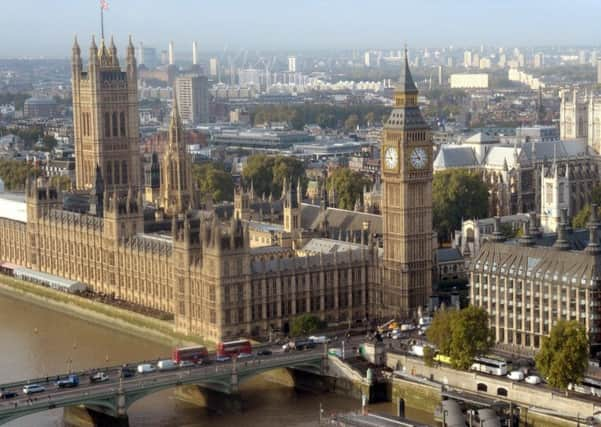Matt Warman: Slogans alone can't close gap of trust in politics


In the US, Barack Obama ran on both ‘hope’ and ‘change’.
More recently, at a time of unique national difficulty, ‘fixing the roof while the sun is shining’ was the promise.
And, more generally, the hardy perennial is “on your side”.
What’s attractive about all these phrases?
Advertisement
Hide AdAdvertisement
Hide AdThey’re all defined not by the writer, but by the reader – their meaning is in the eye of the beholder. No wonder, when it comes to delivering a programme for government, even heroes end up distrusted.
That absence of trust was the perturbing conclusion in the polling conducted for my recent Centre for Policy Studies report called Who Governs Britain?. In essence, it asks what we must do to tackle the gulf between politicians’ day-to-day actual actions and the sense that once somebody is elected they cease to act in the public interest. This is despite the fact that Britain is a country blessed with what are among the lowest rates of corruption in the world.
It’s inevitable that politicians campaign in poetry and govern in prose, as Mario Cuomo, three-time governor of New York, put it. But a maximum of only nine per cent of Britons feel they would be dealt with fairly when dealing with government – this is truly a crisis of confidence in our democracy.
Some four in 10 had no trust in parish councils, local authorities, and the House of Commons; only 71 per cent of respondents understood that MPs make laws affecting them – and when mapped against postcodes, no respondents were able to correctly identify which layers of government applied to them. There’s a toxic combination of a lack of understanding and a near certainty that finding out more isn’t worth the effort.
Advertisement
Hide AdAdvertisement
Hide AdSome of this comes down to the sense that – according to the news on Facebook at least – things have never been so bad, whichever side you’re on. Looking at just Brexit, there’s always someone willing to accuse the other side of treachery, and a palpable lack of faith that those with whom one might personally disagree are nonetheless acting out of pure motives.
So politics is perceived as more hyperbolic and less relevant than ever before, and something should be done about it not simply for the sake of causes individuals might believe in, but also for democracy itself.
Some of that needs to tackle the perception that decisions aren’t taken in the public interest, and some of it needs to tackle where those decisions are actually taken. So first, Who Governs Britain? proposes that adverts on Facebook make it clear who and why political parties might be targeting individuals, and to make a combined list of commercial interests available to the public.
Our democracy would be healthier if we knew the motives of parties and the potential vested interests that elected government officials have. This is not because there is any evidence that there are serious incidents of unrevealed malpractice – precisely the opposite. Public distrust of elected government, however misplaced, should be examined rather than brushed under the carpet.
Advertisement
Hide AdAdvertisement
Hide AdOn the more substantial issues, however, it is clear that on those that matter to local communities, such as planning in particular, there is a sense that decisions are taken by those who are lucky enough not to be affected profoundly by them.
Moves in Lincolnshire and Devon, among others, to devolve planning powers down, initially for minor cases, show a faith in local people that should be developed further.
And, to go beyond that, it should be clear that if a community is home to hundreds of new houses and extensive new development, that brings with it a predictable and definite benefit to local health services, or broadband or education or the whole host of important public services.
Not all decisions, however, can or should be made at the level of parish or town councils. I’d like to see devolution go as far as it can, but it is also important that the Government work out what the best size really is for the efficiency of, say, a local authority.
Advertisement
Hide AdAdvertisement
Hide AdThe aim behind all of this is to try to provide a greater sense of accountability, and that’s why there is a further proposal that’s been characterised as a ‘right to an explanation’. This builds on the mixed success of the Freedom of Information Act and would make it a requirement for any public body to provide an explanation of a decision, in an easily comprehensible form. So, how much did something cost, who decided it was right and why. In an age of increasing outsourcing to the private sector, the citizen deserves no less.
Individually, each of these measures is relatively minor – but taken together they could seek to close the gap of trust between citizen and state. That’s never been needed more.
Matt Warman is a Conservative MP and author of a Centre for Policy Studies report entitled ‘Who Governs Britain?’.